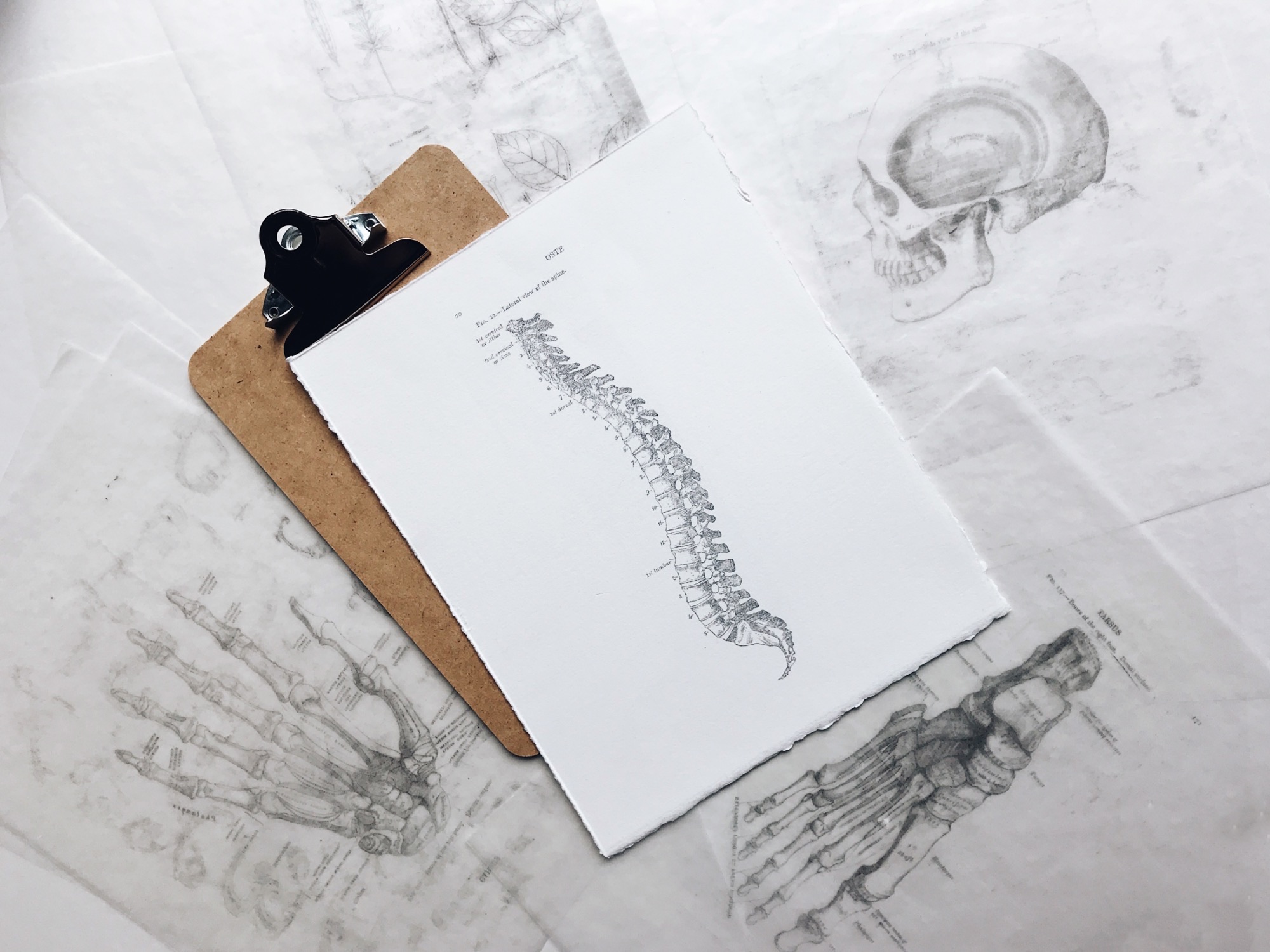Dr Melissa is a Chiropractor who has advanced training as a:
- certified Pregnancy and Postpartum Corrective Exercise Specialist (PPCES)
- certified Functional Range Conditioning Mobility Specialist (FRCms)
- Neurofunctional Acupuncture Provider
She uses a variety of treatment techniques and offers a range of time-based appointments, to provide you with options for care. She recognizes that you know your body better than anyone else and respects your preferences when it comes to creating a treatment plan that best fits you and your goals.
Dr Melissa has a clinical focus in Prenatal & Postpartum care. She uses her expertise in biomechanics, fascia chains, and functional mobility to offer her patients comprehensive assessment, education and rehabilitation programs. She loves guiding people through their pregnancy journey and preparing them to safely return to activity postpartum.
On this page you will find information on:
- Commonly Treated Conditions
- Treatment Techniques offered
- Prenatal Chiropractic
- Postpartum Rehabilitation
- Neurofunctional Acupuncture
- Functional Assessments
- Motor Vehicle Accident Claims
Commonly Treated Conditions:
~ Low Back Pain
~ Sciatica >> Learn more
~ Neck Pain
~ Headaches
~ Vertigo or Dizziness >> Learn more
~ Whiplash/Motor Vehicle Accident claims
~ Workplace Injuries (WCB claims)
~ Disc Bulge or Herniation
~ Spinal Stenosis
~ TMJ/Jaw Pain, Clicking or Dysfunction
~ Upper Back Pain/Stiffness
~ Pregnancy Related Pelvic Pain >> Learn more
~ Postpartum Related Injuries >> Learn more
~ Muscle Strains or Overuse Injuries
~ Sprained Joints
~ Rib Pain
~ Athletic Injuries
~ Carpel Tunnel Syndrome
~ Tingling or Numbness
~ Foot, Ankle or Heel Pain
~ Shoulder Pain
~ Knee Pain
~ Hip Pain
~ Plantar Fasciitis or Heel Fat Pad Syndrome
~ Abnormal Gait Pattern
~ Poor Posture
~ Pediatrics* including difficulty sleeping, feeding, or general discomfort.
*As chiropractors, we are highly trained in performing pediatric assessments and treatments. Your little ones are in good hands.
Treatment Techniques Include:
~ Spinal Manipulation Therapy (SMT) is a hands-on adjustment used to provide a quick stretch through a joint. Joint Manipulation is typically accompanied by a popping sound. This "pop" is from the collapse of little gas bubbles in the joint due to the pressure change that comes from being stretched.
~ Joint Mobilization is a gentle way to stretch a joint within its normal range of motion. This is a great option for children, seniors, and those who are unsure about being adjusted.
~ Activator is a hand-held instrument used to create a high speed but low force adjustment through a joint. Similar to mobilizations, this gentle technique is a great option for those who do not want a traditional adjustment, as well as for children and the elderly.
~ Drop piece is an excellent option for low back and pelvic pain patients. This gentle technique involves pushing down on the pelvis while a collapsible section of the chiropractic table drops. The momentum from the table piece dropping creates a deep, comfortable stretch through the low back and hips.
~ Soft Tissue Therapy including Trigger Point Therapy, Myofascial Release, and muscle stripping. These are deep muscle treatments used to improve muscle function.
~ Trigger Point Needling involves inserting an acupuncture needle into a tight muscle and gently manipulating it. This causes the muscle to relax.
~ Functional Assessments
~ Neurofunctional Acupuncture
~ Postpartum Rehabilitation
~ Webster Technique
~ Custom Made Orthotics
~ Exercise and stretching recommendations
Functional Assessments
Some patients require a more in-depth assessment that includes specific joint and muscle testing through varies ranges of movement, as well as breathing and postural evaluations. The goal of a Functional Assessment is to assess the body as a whole to identify underlying biomechanical (body movement) imbalances, and create an exercise program that specifically addresses those concerns. This type of assessment is beneficial for chronic or recurrent issues such as:
- low back and pelvis pain or instability
- disc herniation or neuropathic pain
- upper back and neck stiffness
- hip concerns including bursitis and impingement
- knee pain
- ankle pain, weakness or recurrent sprains
- foot or heel pain
- Postpartum Injuries >> more info here
Functional Assessments are offered as a timed-based follow up appointment for existing patients. Please discuss with Dr Melissa to decide how much time you will require.
*New Patients, please book a Chiropractic Assessment as your initial appointment. From there, we offer a range of time based follow up options to allow for complete customization of your treatment plan, depending on your needs and goals.
Neurofunctional Acupuncture
While acupuncture has roots in Traditional Chinese Medicine (TCM), Dr. Melissa uses a different treatment approach. She was trained in Neurofunctional Acupuncture through McMaster University, a program that is world renowned and at the forefront of today’s acupuncture research.
Neurofunctional Acupuncture is a treatment which involves insertion and gentle manipulation of needles in the body. These needles can affect muscles, nerves, blood vessels, and joints and work to return the body to its natural balance. It can be used to treat a wide variety of musculoskeletal conditions such as:
- Low back and neck pain
- Whiplash injuries
- Sprains/Strains
- Joint Inflammation
- Headaches
- Nerve impingement
- Tendonitis and Tendinopathy
Prenatal Chiropractic

Pregnancy is an incredible feat for your body! It can be both exciting and challenging to navigate.
During this time your posture is rapidly changing, which has a drastic effect on your movement patterns and balance. You also have lengthening in the abdominals and pelvic floor muscles to accommodate your growing baby. Your breathing pattern also adapts as your baby pushes against your ribs and diaphragm. These changes affect the way we hold pressure in our body, known as our 'pressure management strategy'. The way our core structures manage pressure directly impact our ability to stabilize the low back and pelvis, protecting them from injury. This decreased stability combined with the altered posture, breathing and movement patterns is what causes pain in the low back and pelvis including the SI joints, and pubic symphysis. It's also the underlying cause of many postpartum injuries including pelvic floor dysfunction, diastasis recti and low back injuries. If you'd like to learn more about Postpartum Rehabilitation click here.
As a certified Pregnancy and Postpartum Corrective Exercise Specialist, this is Dr Melissa's area of expertise and passion. She uses her knowledge in prenatal & postpartum biomechanics, functional mobility, and pressure management strategies to educate her patients in safe movement patterns and proper core engagement. In addition to these preventative education measures, Dr Melissa is trained in the Webster Technique which is a set of treatment protocols specific to pregnancy that aim to restore balance to the low back and pelvis. This technique, along with other chiropractic treatment options, help to improve joint mobility, reduce muscle tension, and take pressure off the surrounding ligaments.
Commonly Treated Prenatal Symptoms Include:
- Low Back Pain
- SI Joint Pain
- Sciatica
- Pubic Symphysis Pain aka Lightning Crotch
- Round Ligament Pain
- Carpal Tunnel Syndrome
- Hip Pain
- Upper Back Stiffness
- Neck Pain
- Shoulder Stiffness
- Headaches
- Abdominal Hernia
- Incontinence
***NEW: We are now offering a comprehensive Prenatal Assessment, Education and Rehabilitation bundle! See details below***
Prenatal Education Package:
When you see Dr Melissa for treatment, she includes all the information you need to understand your pregnant and postpartum body... but maybe you want a compressed 'crash course' instead. This is where the Prenatal Education Package comes in.
These bundled appointments were designed to help you take the guess work out of your pregnant and postpartum body. On completing this series, you can expect to gain a thorough understanding of your abdominal cannister (commonly known as your core), and how to use breathing, alignment, and movement patterns to set up a strong foundation for your body. You will also learn how to apply this knowledge during your daily activities, enabling you to recognize your physical limits and mitigate your risk for postpartum injuries.
Whether you are mostly sedentary or an elite athlete, this package was designed to be applicable to every pregnant body, regardless of activity level.
"The information that I've compiled for the Prenatal Package is everything I knew for my second pregnancy, that I wish I'd known for my first." -Dr. Melissa Reinke
Prenatal Package
Foundations Part 1: Breathing and Alignment
45 minutes
- Health history and discuss goals
- Posture and breathing assessments
- Understanding how your specific breathing patterns and alignment impact your ability to manage core pressure
- Education on ineffective pressure management relating to Diastasis Recti, Pelvic Floor dysfunction, and Low Back injuries
- You will be provided with an electronic report summarizing your take home points, including step by step PDF instructions for any exercises
Foundations Part 2: Movement Patterns
45 minutes
- Education and training of common movement patterns that contribute to functional mobility
- Learning how to balance mobility with stability to optimize core function and pressure management
- Determine how to self evaluate for core safety ie. signs of tissue overload, during daily activity and exercise
Postpartum Preparation
30 minutes
- Education on correcting common dysfunctional postpartum postures that lead to ineffective pressure management
- Understanding common postpartum breathing patterns that lead to ineffective pressure management
- Learning how to combine movement patterns to create postpartum specific tasks ex. lifting baby from crib
- Postpartum Recovery Plan for weeks 0-2, 2-4 and 4-8 specifically designed to encourage abdominal wall and pelvic floor healing, setting your body up for a safe return to activity
$405
Note regarding receipts:
After each of the 3 sessions, you will receive a receipt which can be submitted to your extended health insurance for reimbursement. Where possible, Naturally Balanced will submit claims on your behalf with payment going directly to the plan member.
Top of Page
Postpartum Rehabilitation
Dr Melissa's area of expertise is in Postpartum recovery, including chronic dysfunctions that can persist for decades after pregnancy. She recognizes the immense challenges of navigating your pregnant or postpartum body while keeping up with the demands of life.
Being a parent is mentally and physically hard! It takes strength, mobility and endurance that can adapt with you; but it's just as important to recognize and respect the obstacles in your path- carrying a huge mental load, having limited time, and needing to do daily repetitive tasks.
Understanding how your body moves, adapts and at times fails, is important for healing. This is a journey that starts with your pregnant body, but really continues on for the rest of your life.
Commonly treated conditions include:
~ Pelvic Floor Dysfunction
~ Urinary Incontinence
~ Diastasis Recti
~ Abdominal Bulging
or doming
~ Pelvic Organ Prolapse
~ Abdominal/Inguinal Hernias
~ Low Back and SI Joint Pain
~ Disc Herniations
~ Pre and Post Surgical Rehab for any of the above
These conditions all have one very important thing in common; they are symptoms of ineffective pressure management. The abdominal cannister, commonly known as your core, is designed to use pressure to create pelvic stability. This is the base of support that allows for functional mobility throughout the hips, upper back, and shoulders. It is also the support needed for our body to handle force from both internal (cough, sneeze) and external (lift, carry) load demand. When our strategy for managing pressure fails, the body compensates in ways that are less effective. This causes further compensations, injuries and far-reaching effects through out the entire body, all the way from your jaw to your feet.
The reason these conditions are so commonly related to pregnancy is because our strategies for managing pressure are dependant on our breathing patterns (how we direct pressure) and the alignment of the abdominal cannister. Both of these factors drastically change throughout pregnancy, and in the early postpartum period when our fascia and muscles are over-lengthened and in the process of healing.
Dr Melissa's approach to postpartum recovery is highly influenced by her own experience with postpartum injuries. She knows first-hand how overwhelming it can be to start rebuilding trust in your body. She emphasizes having compassion and patience for yourself while navigating this journey. There are no gains that are too small, and no setbacks that can't be learned from.
Frequently Asked Questions- Postpartum Rehabilitation
What can I expect during my appointments?
Your Chiropractic
Assessment and first follow up appointment (which ranges in time based
on your individual needs) will focus on assessing
how your body functions. We look at your posture,
breathing patterns,
functional joint ranges, and movement patterns.
This can include assessing the mobility and strength
of your: hips, low back/pelvis,
abdominals, upper back, shoulders, feet, neck and jaw.
The follow up appointments are
time-based and are an opportunity to review your exercises,
and make modifications, progressions, and
additions. The focus is on perfecting your form, building
strength and re-balancing your core muscles while
ensuring you don't feel overwhelmed.
How often do I need to come in?
Follow up sessions are typically booked every 2-6 weeks, depending on your needs. We purposefully offer a lot of flexibility.
I've tried other rehab programs in the past and felt overwhelmed by all the exercises. Is this different?
Each practitioner whose focus is postpartum care has their own way of guiding their patients to their goals. PCES providers have a central focus in educating on the foundations for a strong core, which include alignment, breathing, and movement patterns. Armed with this knowledge, patients are able to set the pace for their recovery while building confidence and trust for their body. An analogy that fits well is climbing a mountain... there are multiple paths to the top, some are straight lines, others are slow and winding... but no matter which way you choose you are taking steps towards your goal. Although this is your mountain to climb, and you are in control of when and how you get to the top, rest assured that you will have all the support you need along the way.
What do I wear to my appointments?
Please dress in comfortable clothing that you can move well in. Work out clothes are ideal.
I am 20+ years postpartum... is this right for me?
YES! There is no time limit on when you can be helped.
I'm not postpartum but I have one of the conditions listed above. Can working with Dr Melissa help me?
Absolutely. This program is designed around a postpartum body because that is typically when our pelvic floor and core structures undergo the most stress. However, it is applicable to everyone! The goal is to re-train how your body moves, regardless of your gender, activity level, past injuries or health history.
Do you include internal pelvic examinations or treatments?
No. It is not within a chiropractor's scope of practice to do any
internal examinations of your pelvis. Dr Melissa
uses multiple factors to determine the tension of your
pelvic floor including your health history, hip muscle testing,
and breathing assessments.
For some patients, Dr Melissa may recommend that you include a pelvic
floor physiotherapist in your care.
Are these visits covered under Alberta Healthcare or my Extended Health Benefits?
Chiropractic treatments are not covered under Alberta
Healthcare, with
the exception of seniors over the age of 65.
Most Extended Healthcare plans do, however, include Chiropractic. If you have any questions about your individual benefits, please contact your insurance company directly.
We are able to direct bill to most insurance companies.
If you have any other questions, please feel free to call or email the clinic. Dr Melissa also offers a free 10 minute consultation.
Top of Page


